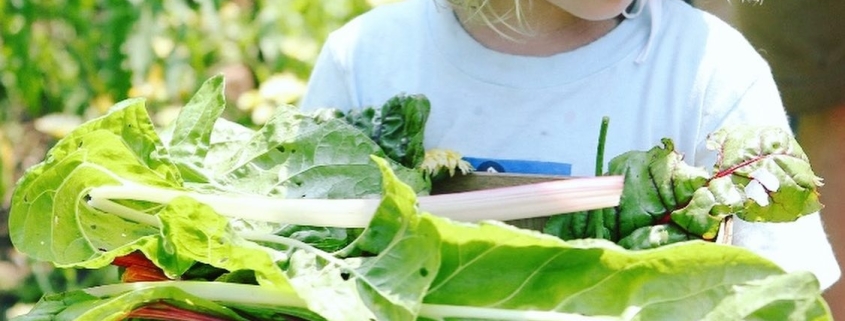Nurturing Healthy Habits: 5 Benefits of Cooking With Your Kids
Kids in the kitchen may not be the quickest way to get dinner to the table, but for growing young minds and bodies, it’s recipe for success. Engaging kids in the kitchen transforms mealtime into a fun learning opportunity that develops essential life skills, boosts confidence, and fosters a lifetime of healthy eating.
Here are five research-backed benefits of cooking with kids:
1. Encourage Adventurous Eating
When kids are involved in meal preparation, they are more adventurous eaters, open to a variety of foods. A study published in the Journal of the Academy of Nutrition and Dietetics found that children who engage in tactile experiences, such as handling foods, exhibit less neophobia, or food fear (van der Horst et al., 2014). Additionally, research indicates that children involved in cooking are more willing to try foods they help prepare and tend to consume foods from all food groups (Ng et al., 2021; Quelly, 2019; Nozue et al., 2016).
2. Increase Vegetable Consumption
Getting kids to eat their veggies can be a challenge. Over 90% of children in the U.S. consume fewer vegetables than recommended (Kim et al., 2014). But studies show that children who participate in cooking are more likely to eat both raw and cooked vegetables at mealtime without feeling pressured (DeCosta et al., 2017; Garcia et al., 2020). Regular involvement in meal preparation leads to an additional serving of vegetables daily, contributing to healthier diets and reducing the risk of nutritional deficiencies (Chu et al., 2014; Quelly, 2019).
3. Boost Self-Confidence and Accomplishment
Cooking provides children with a sense of accomplishment that boosts their self-confidence. A study of fourth graders participating in cooking classes showed that children felt a “sense of accomplishment” and increased self-confidence from their cooking experiences (Fernando, 2020). This confidence extends to other areas of their lives, promoting independence and self-sufficiency (Asigbee et al., 2020).
4. Cultivate Essential Life Skills
The kitchen is a fantastic learning environment where children can develop valuable life skills. Cooking teaches basic math skills such as counting, measuring, and weighing, as well as science concepts, vocabulary, and following directions (Fernando, 2020). According to the American Academy of Pediatrics, cooking time can be used to teach kids about nutrition, food origins, and food safety, enhancing their understanding of balanced meals and the benefits of whole foods (Fernando, 2020). Through fun, practical learning experiences, children learn skills that prepare them for future independence.
5. Promote Healthier Eating Habits
Children who cook are more likely to develop healthier eating habits that last a lifetime. A study by Melissa Plugh Prescott and colleagues from the University of Illinois found that cooking-related programs for kids lead to healthier eating behaviors, particularly in terms of fruit and vegetable intake (Prescott et al., 2019). The study showed that kids’ preferences for vegetables and their confidence in cooking (cooking self-efficacy) are significant predictors of their diet quality. By fostering a love for cooking and healthy foods, parents can set their children on a path to better dietary habits.
With patience and planning, involving your children in the kitchen creates enjoyable family time while instilling lifelong skills and healthy habits. So, roll up your sleeves, grab some ingredients, and start cooking with your kids today.
Shine On, Little Chefs!
Want to get your child cooking, but not sure where or how to begin? Here are 3 fun ways to get started:
- Try this fun cooking class guide from the American Heart Association at home.
- Sample these summer kid-friendly recipes together as a family.
- If you’re in NYC’s East End, reach out to learn about Kitchen Stars, a cooking class for ages 3-10.
Resources:
- van der Horst, K., Ferrage, A., & Rytz, A. (2014). Involving children in meal preparation. Effects on food intake. Appetite, 79, 18–24 . https://doi.org/10.1016/j.appet.2014.03.030
- Ng, C. M., Kaur, S., Koo, H. C., & Mukhtar, F. (2021). Involvement of children in hands-on meal preparation and the associated nutrition outcomes: A scoping review. Journal of Human Nutrition and Dietetics , 35(2), 350-362. https://doi.org/10.1111/jhn.12911
- Quelly, S. B. (2019). Helping with meal preparation and children’s dietary intake: A literature review. The Journal of School Nursing, 35(1), 51–60. https://doi.org/10.1177/1059840518781235
- Nozue, M., Ishida, H., Hazano, S., Nakanishi, A., Yamamoto, T., Abe, A., Nishi, N., Yokoyama, T., & Murayama, N. (2016). Associations between Japanese schoolchildren’s involvement in at-home meal preparation, their food intakes, and cooking skills. Nutrition Research and Practice, 10(3), 359–363. https://doi.org/10.4162/nrp.2016.10.3.359
- Kim, S. A., Moore, L. V., Galuska, D., Wright, A. P., Harris, D., Grummer-Strawn, L. M., Merlo, C. L., Nihiser, A. J., Rhodes, D. G. (2014). Vital Signs: Fruit and vegetable intake among children—United States, 2003–2010. Morbidity and Mortality Weekly Report (MMWR), 63, 671–676.
- DeCosta, P., Møller, P., Frøst, M. B., & Olsen, A. (2017). Changing children’s eating behaviour—A review of experimental research. Appetite, 113, 327–357. https://doi.org/10.1016/j.appet.2017.03.004
- Garcia, A. L., Brown, E., Goodale, T., McLachlan, M., & Parrett, A. (2020). A nursery-based cooking skills programme with parents and children reduced food fussiness and increased willingness to try vegetables: A quasi-experimental study. Nutrients, 12(9), 2623. https://doi.org/10.3390/nu12092623
- Chu, Y. L., Storey, K. E., & Veugelers, P. J. (2014). Involvement in meal preparation at home is associated with better diet quality among canadian children. Journal of Nutrition Education and Behavior, 46(4), 304–308 . https://doi.org/10.1016/j.jneb.2013.10.003
- Prescott, M.P., Lohse, B., Mitchell, D.C. et al. Child assessments of vegetable preferences and cooking self-efficacy show predictive validity with targeted diet quality measures. BMC Nutr 5, 21 (2019). https://doi.org/10.1186/s40795-019-0286-7
- Fernando, N. (2020, 11). 5 great reasons to cook with your kids. HealthyChildren.Org. https://www.healthychildren.org/English/healthy-living/nutrition/Pages/Cooking-WithYour-Children.aspx
- Asigbee, F. M., Davis, J. N., Markowitz, A. K., Landry, M. J., Vandyousefi, S., Ghaddar, R., Ranjit, N., Warren, J., & van den Berg, A. (2020). The association between child cooking involvement in food preparation and fruit and vegetable intake in a hispanic youth population. Current Developments in Nutrition, 4(4). https://doi.org/10.1093/cdn/nzaa028



